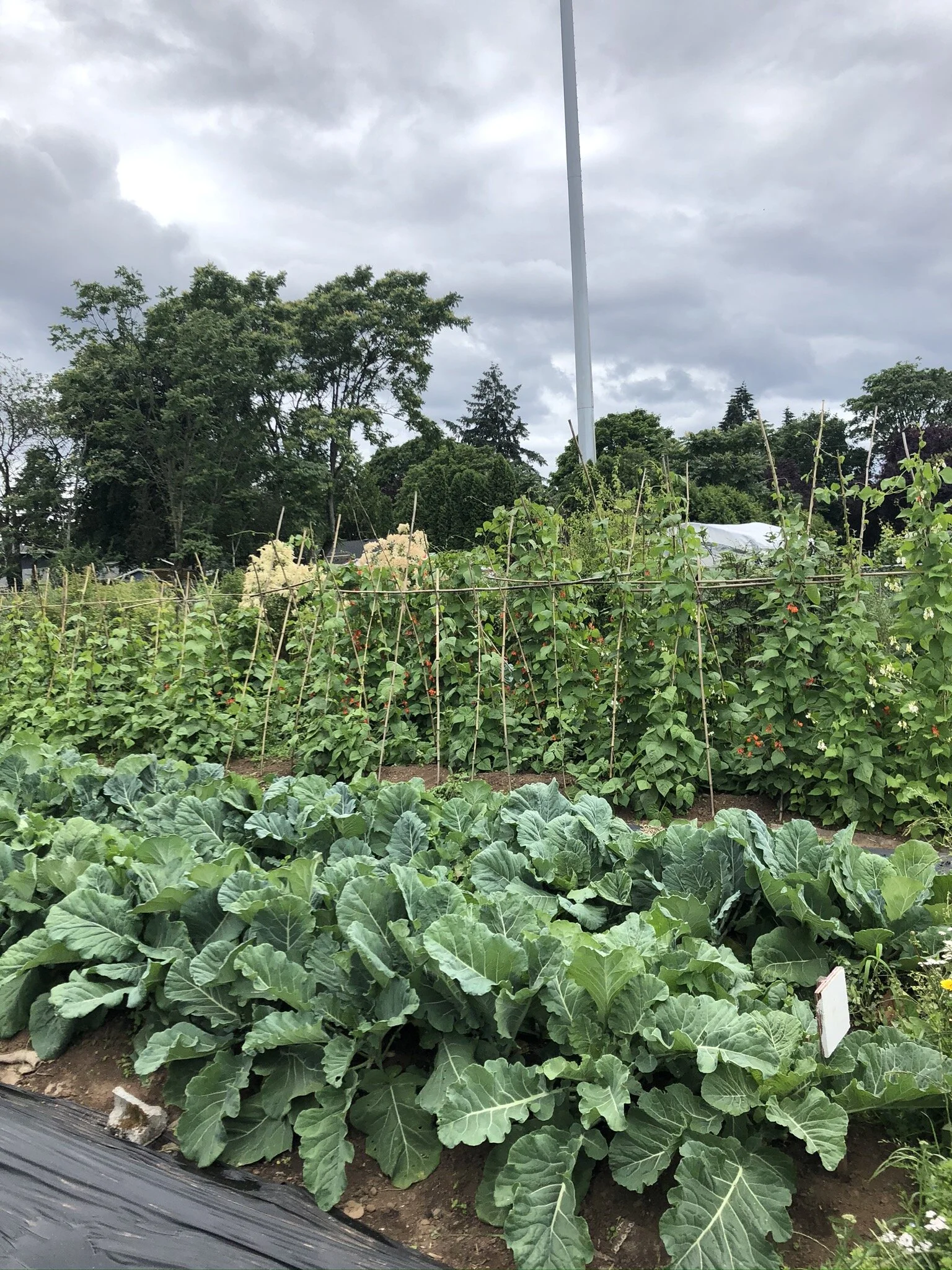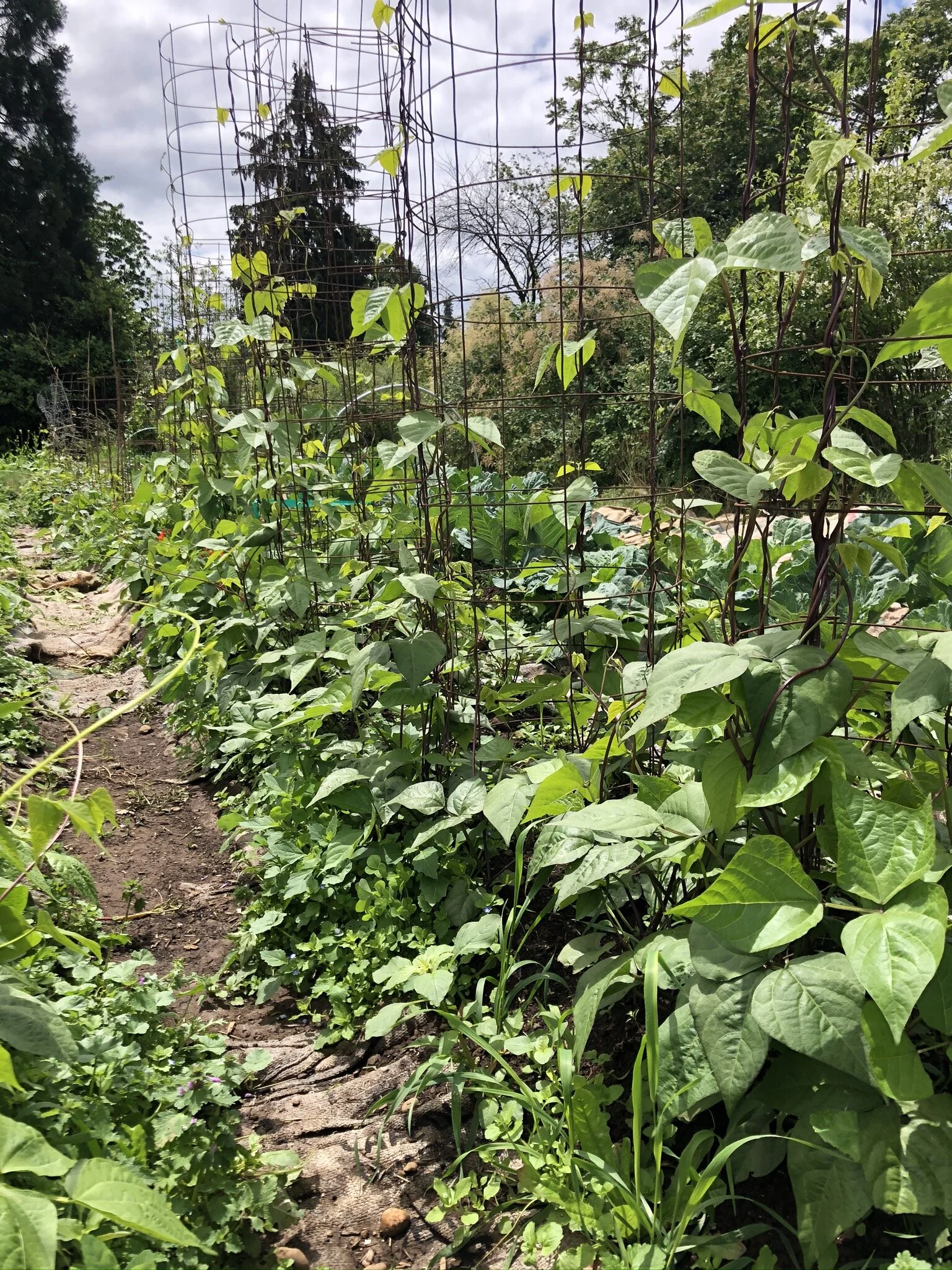Black Futures Farm
By Makayla Micheal
“Land has been the root of dominion and as such is the root of revolution and self-determination. Displacement pre- and post-colonialism continues to deracinate our ability to take root, reclaim, liberate exploited land and call it home. Our connection to, relationship with and access to land is an essential source of our healing, power and ultimately our liberation. As land based indigenous people, Black communities have a deep connection to the earth with land as a source of spiritual, economic, cultural and communal grounding.” (1)
We sit now on land that was stolen from the Indigenous and built upon with free labor through the enslavement of Black folk -- both of which helped to elevate the current systems and continues to uplift those who benefit from that dominion. Black folk are tied to the land. We have spent centuries nurturing the land but we now face many barriers that leave us out of the conversation about what food sovereignty looks like. Black folk are heavily impacted by food scarcity and we stand in front of barriers of constant upheaval that leave us with little access to have relationships with the land. Land control is an ongoing issue. From 1920 until now, we have seen the number of Black farmers go from about one million, 14% of the farming population, to forty-five thousand today, about 1.3% of farmers. This has led to an estimated eleven million acres of lost land through the means of disenfranchisement, discriminatory loan practices, discriminatory taxing practices, manipulation of information, intimidation, and straight up theft.
The space we sit on specifically, the northwest, is land Black folk were never allowed to be on. Exclusionary acts prevented Black folk from moving into Oregon starting in the 1840s and prevented us from access to the 650 acres given to white folk by the government (2). Today, Black folk make up about 3% of Oregon’s population. The work around convening as Black folk, as Black farmers in particular, is important to make spaces for ourselves because there have been so many instances of Black folk being excluded from this land. In a land booming with an extensive food grower movement doing active work to exclude Black folk from creating spaces for themselves, we are doing revolutionary work.
Today, to be a Black farmer is to lay roots in a space our ancestors were forced to be in. We face barriers that explicitly state we are not welcome. We have historically been set back in our ability to provide generational wealth and legacies, and continue to be. We are back in the soil our ancestors were forced to work, building again our relationship with the earth we spent centuries building. We have long been stewards of the land. To be a Black farmer in these times is a revolutionary act. We are creating self sufficiency and community for ourselves. We are doing the work of finding each other and deciding to work together to feed our people – bringing food sovereignty – and laying down roots for those that will come after us. Black liberation looks like being able to create self reliance, to be able to feed ourselves.
Farming is dynamic work, involving many moving parts: the planning, the marketing, the work with the actual land, the work with the people, and distribution. In the times of a pandemic, the layers began to grow. We are doing work to bring food to a food scarce population. Black communities have been hit the hardest by the pandemic and food security has always been an issue that has impacted folks of color the hardest. We are now fighting both the right to bring food and self-sufficiency to a population that struggles with food access and now struggles with being disproportionately impacted by the pandemic.
Black Futures Farm, a vegetable farm right here in Southeast Portland, was born from the work of the Black Food Sovereignty Coalition. Black Futures Farm is both a concrete standing farm and an ideology of Black folk coming together and reworking the land black folk have been working for a long time since. Black Futures Farm is “a group of Black identified/Diasporic and Continental African people working together, growing food and community.”(3) The aim of Black Futures Farm is community-based, to bring food to black families in the area, and doing the work of structuring a member-owned collective model, dispersing profit through those that put their time into the farm.
Last week at the farm, we planted okra, cucumbers, winter squash and melons. This week we harvested collards. We spent a weekend setting up a melon field. We waited for our soil test to arrive and we mixed sulfur into the dirt. There is a certain flow to the farm. We convene, we spend time with the plants, the northwest weather in the summer moves from sun to overcast, we meet again, we rest, we go back to the plants, we leave the farm, and then we come back again to meet the next day. We work to grow food and we work to teach other black folk in order to bring autonomy in providing for our needs outside of a white supremicist capitalist system and bridging the gap to food access. We follow in the footsteps of a number of enslaved Africans of the early 19th century who sold produce from their personal gardens to buy their freedom (4). We continue the work of nurturing Black folks' relationship with the land.
“Transforming society requires deep and sustained ideological and strategic mass based organizing, and those tactics have always been at the center of confronting and shifting power shifting in black communities, emerging the collective wisdom of the grassroots into strategies that uproot and dismantle systems of oppression.”¹
You can support Black Futures Farm and the Black Food Sovereignty Coalition by providing reparations to members of black population of Oregon as they begin to work back to their relationship with the land by providing reparations through donations at https://blackfoodnw.org/donate/. The CSA hopes to provide food to other members of the Diaspora in the Northwest. Another way you can support is sponsoring a black family in order to provide them a CSA share in order to bridge the gap of accessibility.
1. see Black Food Justice Rationale Strategy for a comprehensive look at the ties between Black Liberation and Food Justice for Black folks- https://www.blackfoodjustice.org/rationale-strategy
2. The US Government granted 640 acres to each missionary station in Oregon. The Donation Land Act of 1850 also granted 320 acres of free land to white males, and an additional 320 acres if he was married. Coleman, Kenneth R. “White Man’s Territory: The exclusionary intent behind the 1850 Donation Land Act.” Oregon Humanities, 2018. https://www.oregonhumanities.org/rll/magazine/owe-spring-2018/white-mans-territory-kenneth-r-coleman/
3. see Black Futures Farm FAQ - https://blackfutures.farm/faq/
4. Covey, Herbert C.., and Dwight Eisnach. What The Slaves Ate: Recollections of African American Foods and Foodways from the Slave Narratives. Greenwood Press, 2009.



